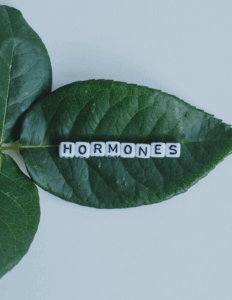Did you know that over 30 million people suffer from a thyroid condition? And did you know that women are 5 to 10 times more likely to have hypothyroidism than men?
Although the thyroid may not be the first organ that comes to mind in the body, it is crucial to everyday health and bodily functions. The thyroid is responsible for making the hormones that regulate your metabolism. When it’s unable to function properly, you can develop hypothyroidism, or low-functioning thyroid.
Here’s what you should know about hypothyroidism and how it can affect your life:
What are the symptoms?
Symptoms vary from person to person but generally speaking, these are the symptoms each gender may experience:
- Mood swings or moodiness
- Joint aches
- Forgetfulness
- Weight gain or fluctuation
- Elevated cholesterol
- Dry or itchy skin
- Problems with concentration
- Goiter (enlarged thyroid)
- New or worsening depression
- Loss of energy and/or persistent fatigue
- Slowed heart rate
- Hair loss, brittle nails and hair
- Constipation
- Numbing or tingling
What are the risk factors?
Risk factors for hypothyroidism are:
- Increased risk with age, starting even in the 20s and 30s
- More common in women than in men
- Pregnancy & postpartum thyroiditis or low-functioning thyroid may occur after the delivery of a baby
- Family history of hypothyroidism or autoimmune disorders
- Autoimmune diseases such as Hashimoto’s Thyroiditis
- Central Hypothyroidism – pituitary gland problems that damage cells that secrete TSH
- Radioactive iodine treatment or radiation treatment to the head or neck
- Medications such as lithium, sulfonamides, high doses of iodine & amiodarone
- History of thyroid surgery
- Congenital hypothyroidism underdeveloped or absent thyroid at birth
How do I get diagnosed with hypothyroidism?
In order to be diagnosed with hypothyroidism, your PCP or healthcare provider will take into consideration the following:
- Personal and family history
- Risk Factors (mentioned above)
- Symptoms
- Medications
Your healthcare provider or PCP will also ask for a physical exam along with a comprehensive set of laboratory blood tests in order to properly evaluate your thyroid.
A “normal TSH” test is not enough to fully evaluate thyroid function; ask your provider to test your blood for T3 free, T4 free, TPO-ab, and sometimes Iodine too.
Please contact us for details regarding a consultation and blood work.
What happens if I’m pregnant?
Don’t worry. Many women with hypothyroidism can still get pregnant or have a safe pregnancy if you’re diagnosed during pregnancy.
Did you know that postpartum thyroid dysfunction occurs in 5 to 10 percent of women who’ve just given birth?. While some women’s thyroids naturally recover postpartum, some women are not as lucky, and need lifelong thyroid replacement.
Often, hypothyroidism can be confused with postpartum depression or blues, so please make sure to get tested for hypothyroidism if you suffer from any of the following symptoms or risk factors listed above.
Regardless, there is good news! People who are diagnosed with hypothyroidism can be successfully treated and live normal lives.
To learn more about our alternatives to synthetic thyroid medications, please contact us: 858-609-0866
Sources:
https://npthyroid.com/tipsresource/hypothyroidism-symptoms/
https://npthyroid.com/tipsresource/hypothyroidism-risk-factors/
https://npthyroid.com/tipsresource/diagnosing-hypothyroidism/
https://www.everydayhealth.com/thyroid-conditions/hypothyroidism/men-vs-women/
https://www.goodrx.com/blog/hypothyroidism-in-men-symptoms-causes-treatments/#:~:text=Studies%20show%20that%20between%203,are%20more%20common%20in%20women.
https://www.thyroid.org/patient-thyroid-information/ct-for-patients/volume-8-issue-8-aug-2015/vol-8-issue-8-p-3-4/








